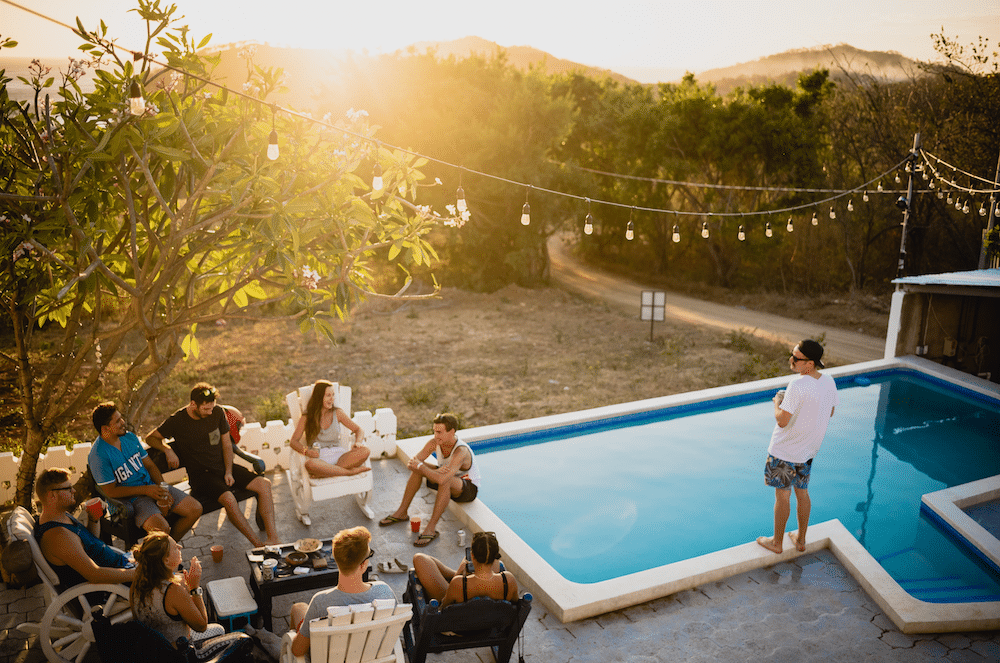When thinking about building a pool on your vacation rental property, there are several factors to take into consideration. Apart from cost and aesthetics, you need to establish if your site is up to it and if you are allowed to install a pool as your municipality or residents’ association may have regulations that you should know about. You then need to weigh all of these elements up against what you stand to gain from adding the pool.
We break down the process by looking at five aspects which will hopefully make your decision a simple (and potentially lucrative) one.
Consider Your Site from a Suitability Perspective
When planning your pool, it can be easy to get carried away with the idea of it all. However, it’s important to view anything which can be a major investment with a level head. The first thing to do is investigate if building a pool requires any permits or authorizations. Give your local municipality a call to identify what regulations or requirements for plan submissions they have. If you live in a community with an active residents’ association, do the same. It would be terrible if you got to the final days of your build, only for a grumpy neighbor to stop in and complain to the board. Also, evaluate the size of your yard and the ratio of pool-to-land that you want.
You may need to remove a tree or two to avoid them creating too much shade or dropping foliage in the water, or due to potential root damage to the pool lining in the future.
Finally, consider your guests’ privacy. Is the pool visible from the street at all? Is it possible to see swimmers? Can nosey neighbors see over the fence? You may need to adjust your boundary fence for intimacy. All of these factors can have cost implications and it’s better to be aware of them up front.
Establish Whether the Site Will Allow for a Pool
One thing that many homeowners forget to assess when putting in a pool, is whether the site is able to support such a large, heavy body of water. If you live on an angled piece of land, you’ll need to compensate by adding a foundation and supports to ensure your pool doesn’t slide down the hill.
It’s also useful to review the substrate material. For example, it may be very sandy or wet due to a high water table, which could require extra preparation before the pool goes in. If you are unsure, it’s wise to involve a structural engineer in the process.
Decide on the Ideal Position for Your Vacation Rental Pool
There is no doubt that adding a pool to a property makes the place more attractive and enticing for guests. In fact, a recent survey found that 81% of renters think a pool is important when choosing a place to stay. However, when deciding on your pool’s position, you do need to take a few things into consideration regarding its use. Think about the type of guest you are most likely to host at your rental property.
For instance, if you are likely to have families, it’s important that the pool is visible from inside the house, so adults can keep an eye on kids who are swimming. Or, if your guests are adults, provide space around the pool for entertaining and relaxing, and work out where you will store related items like cushions, pool inflatables and even cleaning equipment. Make sure the pool gets as much sun as possible during the day to help keep it at a pleasant temperature, naturally.
Choose the Best Pool to Suit Your Needs
Contemplate which style of pool will be best for your needs. Looking again at the type of guests you will have, examine how the design of the pool will affect them. For instance, if you host families with children, a large shallow step would be handy. Or, if you are targeting corporate guests, it may be a good idea to design a long pool to allow for a few laps in the morning before work. Try to cater to as many different guest types as possible, within your means.
Choose the type of pool you want according to cost, style and use. For instance, a prefab, molded pool is quick and cost-effective to install, but there are limitations in designs and colors, Also, decide if you want your pool to be heated or not, and if you’re going to heat it, the kind of system will affect cost. For example, solar panels have a higher up-front cost, but should pay for themselves in the long run.
Irrespective of use, you will need to consider pool safety, keeping in mind some items are required by law, and will be especially useful given your guests will be using the pool without you there to supervise. Though pools are lovely, they can also be dangerous and it’s important to protect yourself from damage, accidents and costly litigation.
Evaluate How Much It’s Going to Cost
The type of pool you choose will have different cost implications; price to install starts from about $6,000 for an above ground pool, and you can triple that for an in-ground one. Maintenance tasks include weekly/monthly cleaning and who will do it, as well as long-term care. A chemical pool, for example, requires regular monitoring to check acidity levels but provides that crystal clear blue water ideal. While a natural pool is generally fuss-free, but guests may have issues with plants and other wildlife (which are intrinsic to its functioning) sharing their pool.
Another important factor is the timeframe: how long will it take to build the pool? Can you afford to have your rental home out of commission for a week or several months (depending on the complexity of the work)? Make sure contractors will have the necessary access to the site, as, for instance, a prefab pool needs to be brought in intact, so access for a truck and crane will be vital.
Consider All These Aspects Before Taking the Leap
We have provided the main points necessary to consider for your pool’s cost-benefit analysis, and hopefully, they have provided clarity. Of course, once you’ve considered all of these aspects you need to find a contractor who is able to work with you and carry out the installation to your exact requirements.
For any renovation, there will always be unpredictable elements, but we have pointed out potential problem areas so you can avoid issues before they happen. At the end of the day, you’ll end up with a beautiful pool in your vacation rental which can increase occupancy significantly, especially in warmer areas. Remember that, for some guests, a pool will be the difference between choosing your home or someone else’s.
About the Author



